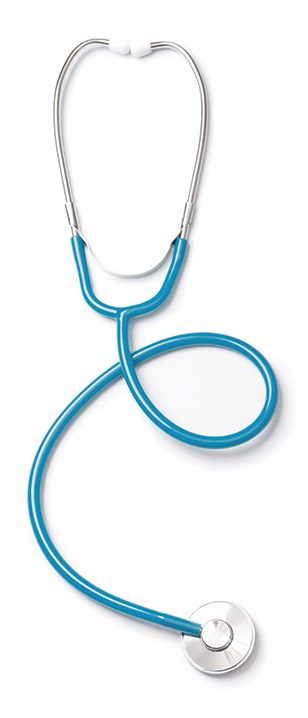Medical Fitness to Travel

The stress of travel may be exhausting for a healthy person but is unlikely to cause significant harm. If you are healthy and fit, regular wellness visits to your doctor — such as annual physicals and screenings as suggested for your age — may suffice. If you have any preexisting conditions, have recently suffered an acute illness, lead a sedentary lifestyle or have not had a medical checkup in a while, you should schedule a pretrip health check with your primary-care physician. Ask your physician about a medical summary of your overall health history. This might be helpful information for an examining physician in case you need a thorough medical evaluation while traveling.
Of particular concern for travel are illnesses that affect the heart, lungs or immune, hormonal, central nervous or locomotive systems — all of which can limit travelers’ ability to cope with the physical and mental stress of travel. Women in advanced pregnancy, newborns and infants require special consideration.
Adventure travel and participation in sports such as scuba diving involve additional demands on travelers’ health. Depending on your destination, you may need to present a written medical assessment proving your fitness. DAN can refer you to doctors who are trained to help you make travel decisions and advise you on planning and preparing for a trip based on your health.
Seek medical advice before a trip rather than assuming that a health problem won’t occur or deciding that you are willing to accept the risk.
Your doctor can also provide you with an explanatory note if, for example, you need to carry epinephrine pens or syringes and/or injectable medications such as insulin while flying or crossing borders. Such circumstances require planning ahead, but doing so can save you hassle and time and may even prevent some illnesses from worsening or occurring.
Before you start a trip, develop a health maintenance plan: Carry a list of the medications you take and the times you take them, limit your intake of caffeinated beverages and alcohol, and drink (safe) water during and between meals to maintain a healthy level of hydration.
The healthiest travelers are those who regularly see their physician, take their medication as prescribed, eat nourishing meals and engage in regular exercise.
Medical Clearance to Fly
If you become ill or injured abroad, you may need to obtain medical clearance to fly before you can return home. You may also require medical clearance to fly with certain preexisting conditions or if you require special in-flight accommodations for medical reasons. Regulations may vary from airline to airline, so travelers and their physicians should check with the airline’s medical department. Most airlines have their own medical clearance and fitness-to-fly forms, which must be filed well in advance of the flight and finalized at least 48 hours prior to departure.
The following conditions may require preflight clearance:
- recent illness, hospitalization, injury or surgery
- existing unstable medical condition
- need for additional oxygen or use of medical equipment on board
- traveling for medical reasons or treatment
An airline’s capacity to accommodate a patient who needs to be lying down or who needs oxygen administration is limited, and flights may not be immediately available.
The CDC recommends that people who have a chronic illness should visit their health care provider or a travel medicine clinic at least a month before traveling abroad. Certain medications can weaken your immune system and make you more susceptible to infections.
Traveling with Prescription Drugs
People who take prescription medications and plan to travel abroad may be required to carry a letter from their physician describing their medical condition’s nature. Be sure to place this letter in your carry-on bag, wallet or purse and keep it with you at all times. People with diabetes or other illnesses may want to wear a medical alert bracelet.
Keep your medicines, eyeglasses and contacts in your carry-on luggage in case your checked luggage is delayed or lost — and consider packing extras. If traveling abroad, leave medications — including over-the-counter pain relievers and prescription drugs — in their original, clearly labeled containers. Place all your medicines in a clear plastic zip-top bag so customs officials can quickly view them. If you have been prescribed a controlled substance such as a narcotic, check with the foreign embassies of any countries you plan to visit to ensure such medication is legal there.
The U.S. Department of State provides contact information for all the countries that maintain embassies and consulates in the United States.
DAN members have access to a wealth of expert health and travel guidance. Log in to your DAN account at members.DAN.org or join DAN at DAN.org/Membership if you are not already a member.


Seek medical advice before a trip rather than assuming that a health problem won’t occur or deciding that you are willing to accept the risk.


Personal Medical Summary
Ask your doctor to provide you with a summary of your personal medical history, and consider having this summary translated into the language of the countries you plan to visit. If you need medical care during travel, this summary could save time, help overcome a language barrier, provide context for exam findings or help ensure you don’t forget anything. The summary should include the following:
- your full name and date of birth
- known allergies
- chronic diseases
- medications, both prescription
and over-the-counter - surgical history
- blood type
- any positive findings on a physical exam, such as
— known left arm weakness from an obstetric complication
— idiopathic benign anisocoria (asymmetric pupils)
— a known 2×2 cm opacity on right upper lobe
— borderline chronic kidney disease
- anything else your doctor might want to convey to another doctor examining you
DAN Customer Service
Mon–Fri, 8:30 a.m. – 5 p.m. ET
+1 (919) 684-2948
+1 (800) 446-2671
Fax: +1 (919) 490-6630
24/7 Emergency Hotline
In event of a dive accident or injury, call local EMS first, then call DAN.
24/7 Emergency Hotline:
+1 (919) 684-9111
(Collect calls accepted)
DAN must arrange transportation for covered emergency medical evacuation fees to be paid.
Medical Information Line
Get answers to your nonemergency health and diving questions.
Mon–Fri, 8:30 a.m. – 5 p.m. ET
+1 (919) 684-2948, Option 4
Online: Ask A Medic
(Allow 24-48 hours for a response.)